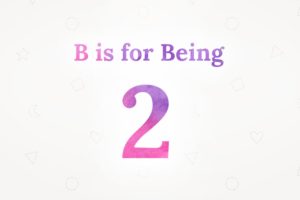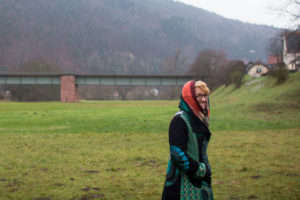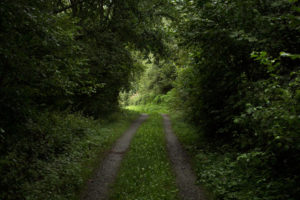Entering new experiences doesn’t have to be so stressful.
Comfort zones are great! But when we feel stuck due to the fear of experiencing something unfamiliar, our sense of well-being suffers as we aren’t able to grow and develop in accordance with our natural drives to create, explore and experiment in the world around us.
Just being aware of the ways we can become stuck from taking action can help us readjust how we approach unfamiliar experiences and make it easier for us to step outside our comfort zones.
Show Highlights and Takeaways
What is a Comfort Zone?
- An environment where we feel safe due to a low level of stress and predictable experiences.
- It’s good to have a comfort zone and it’s not a bad thing to be inside it. However, always staying in our comfort zone isn’t in alignment with our natural drives for growth and development.
- We need to encounter unfamiliar experiences to grow.
How We Keep Ourselves Stuck
- The belief “I’m not good enough” can increase the difficulty of stepping into unfamiliar circumstances, as we are approaching the new experience from a base of inadequacy.
- We can become so comfortable in our comfort zone that any step outside of it seems incredibly difficult.
- When we don’t acknowledge the uncomfortable situations we have already come through, we overlook the fact that we have a track record of working through unfamiliar experiences and that we are capable of doing so.
A Bit of Stress Helps Us Grow, a Lot of Stress Shuts Us Down
- Growth happens when we experience an unfamiliar situation.
- The unfamiliar situation provides a certain level of stress which causes us to bring all of the knowledge and skills we have acquired from previous experiences to the current situation. This causes us to grow and increases the size of our comfort zone once we have come through it.
- If there is too much stress then we feel overwhelmed and aren’t able to deal with the new situation effectively.
- We shut down from too much unfamiliar stimulus and can leave the experience feeling discouraged to try again.
Taking it Step by Step
- When we take gradual steps outside of our comfort zone we allow ourselves to grow gradually, and our comfort zone naturally increases as we become more familiar with the unfamiliar.
- Each step can be a gentle step away from our comfort zone.
- There’s no need to take huge leaps into unfamiliar experiences.
- As we grow, these gentle steps allow us to step into situations which are full of unfamiliar experiences as every step has built upon the growth we’ve encountered previously.
Crossing the Threshold
- Crossing the threshold is always the hardest part to stepping outside your comfort zone.
- The threshold exists between your comfort zone and the unfamiliar experience you’re about to step into.
- It feels so difficult to cross because we imagine all the ‘uncomfortable things’ that might await us on the other side.
- Once we’ve stepped out of our comfort zone and into the new situation there is less stress as we are able to deal with the real situation with our actual knowledge and skills, and not the one we imagined might happen.
- Knowing that crossing the threshold is always the hardest part allows us to cross it anyway knowing that it’s completely normal to feel this way.
We Can’t Compare Our Steps to Someone Else’s
- The steps you take outside your comfort zone are unique to you.
- Whether we think we are taking big steps or small steps, it is not possible to compare the steps we are taking with the steps we think someone else is taking.
- We are unique individuals and have different levels of comfort and discomfort.
We Can Always Return to Our Comfort Zone
- We never need to stay in a situation that is overwhelming for us.
- Returning to your comfort zone when you feel overwhelmed is not a defeat, it is the act of treating yourself compassionately.
- Knowing that you can return whenever you want makes it easier to step outside of your comfort zone.
Resting in Our Comfort Zone
- It’s not possible for us to continuously live life outside of our comfort zone. We will eventually burn out.
- Our comfort zone is a necessary place for us to return to and rest after we have encountered a variety of new experiences for ourselves.
- When we return we are able to process our new experiences and regain the energy we need for our next adventure out into the world.
Social Time!
Did you know you can follow the other bits and pieces of my sharing on:








